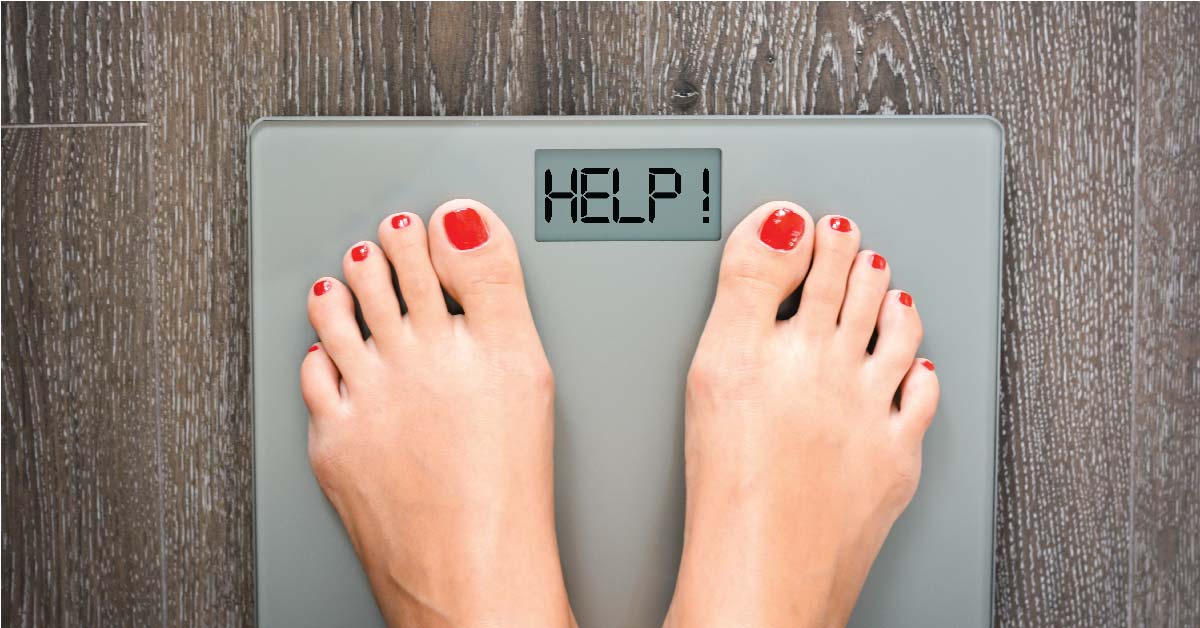Home Remedies To Reduce Menopause Symptoms
31 Jan 2021
Menopause may be an inevitable part of the aging process, but that doesn’t mean that you have to suffer through it. The transition begins for most women in their 40s or 50s and can last for a couple of years, causing distressing symptoms that include hot flashes, fatigue, irritability and mood swings, impaired sleep, and reduced sex drive. Perhaps more concerning is the increased risk of health conditions like weight gain or obesity, osteoporosis, heart disease, and diabetes. Prescription hormone replacement drugs may seem like a quick fix, but most women prefer to avoid such treatments. After all, the risk of side effects can sometimes outweigh benefits. Fortunately, there are many natural treatments and home remedies for menopause that can help to prevent or relieve symptoms of menopause.
Home remedies for menopause include a combination of diet and lifestyle changes, and herbal or nutritional supplements. Before we get to them, let’s take a look at the benefits of turmeric, which is regarded as a superfood.
What Makes Turmeric a Menopause Superfood

The use of turmeric for menopause relief is not something new and it has long been recommended in traditional medicinal systems like Ayurveda. Some of these ancient medicinal practices are now borne out by evidence. The source of turmeric’s myriad health benefits is curcumin, its main bioactive compound. This ingredient has anti-inflammatory properties that can be helpful in dealing with menopause. This is because estrogen levels drop in the body with menopause, resulting in increased inflammation of the joints.
Curcumin is also known to promote heart health and lower the risk of depression, with studies showing that it can circumvent menopause-associated oxidative stress and lipid profile dysfunctions (1). Evidence from one study that looked specifically at the efficacy of curcumin supplementation in postmenopausal women found that it could reduce menopause symptoms like hot flashes within just four weeks (2).
To enjoy the benefits of turmeric for menopause, you can add the yellow spice to your food and beverages. However, curcumin absorption is poor and is better absorbed in combination with black pepper. To maximize curcumin health benefits, you can also take turmeric supplements that have high curcumin bioavailability, including SETU’s Turme Rich.
Home Remedies for Menopause Symptoms
Keep Your Weight in Check

While some amount of weight gain during menopause is not uncommon because of changes in hormone levels, aging, and lifestyle, it’s important to take steps to manage your weight. Excess body weight is regarded as a risk factor for severe menopause symptoms. Weight gain in the abdominal area is particularly concerning, as it is associated with a high risk of both heart disease and diabetes. The use of weight reduction with diet and exercise is supported by research, which shows that just 10 percent of weight loss can help to eliminate menopause symptoms like hot flashes and night sweats (3).
Eat Healthy

Healthy eating doesn’t mean restrictive eating or calorie counting. It means making healthy food choices. Instead of getting calories from processed foods and sugar, most of your caloric intake should come from fresh fruits and vegetables, along with whole grains, pulses, lean meats, fish, and nuts and seeds. In addition to helping with weight management, a healthy diet will also lower the risk of heart disease, which increases with menopause. A high intake of fruits and vegetables provides you with a complex nutritional intake and antioxidants, helping prevent bone loss and osteoporosis, which is common after menopause (4).
Stay Active

Whether you choose to adopt a structured workout program or simply engage in activities like walking, swimming, cycling, or even dancing, it will benefit your health and menopause symptoms. Moderate intensity exercises or aerobic exercises are particularly helpful and you can also combine them with weight training or other muscle-strengthening exercises. Research shows that women who practice yoga or other exercises at least five days a week have a reduction in hot flashes.
Eat Phytoestrogen Rich Foods

Phytoestrogens are organic plant-based compounds that mimic estrogen in the body. This makes them useful at balancing hormones and reducing menopausal symptoms. Soy, tofu, flaxseeds, sesame seeds, and beans are good sources of phytoestrogens and you should include more of such foods in your diet. A study that appeared in the journal menopause, found that women on high soy diets experienced less frequent and severe menopause symptoms and also had better cholesterol and blood pressure profiles (5).
Try Calcium Supplements

Calcium is absolutely essential for bone health and it helps to begin supplementation during menopause, as the reduction in estrogen levels increases the risk of osteoporosis. While the best source of calcium is your diet, calcium absorption slows down as you age. So, although dairy foods, soy, almonds, and some leafy greens are good additions to your diet, it helps to take calcium supplements if you can’t get the required 1,000 to 1,200 mg for menopausal women. Keep in mind that before beginning calcium supplementation, you should talk to your doctor about the appropriate dosage as excessive calcium intake is associated with several health risks.
Get Your Omega-3s

The best dietary source of omega-3 fatty acids is fatty fish like salmon, mackerel, and sardines. The healthy fats in these fish are known to have powerful anti-inflammatory effects that can help reduce menopause symptoms and health risks. Omega-3 fats have been found to improve triglyceride levels and heart health, also protecting against cognitive decline and degenerative brain conditions like Alzheimer’s. In addition to getting your omega-3s from fish, you can also get this nutrient from certain nuts and seeds. In most cases, however, you would need supplementation in the form of fish oil capsules. SETU also has a Veg Omega 3 supplement to meet the needs of our largely vegetarian population.
Meditate

While menopause itself can cause mood swings and irritability, menopause symptoms can be triggered and exacerbated by stress. Additionally, stress triggers the release of epinephrine, which raises body temperature, causing hot flashes. Taking up relaxation techniques and activities like meditation can help to significantly lower the risk of such menopause symptoms. For the best results, it would be a good idea to practice meditation as part of your yoga routine, as studies have shown the practice to be rather effective at managing menopausal symptoms (6).
Breathe Deep

Deep breathing exercises and breathing exercises in general are often used as stress reduction techniques to manage anxiety disorders and chronic stress. The practice can also be highly beneficial for menopausal women, as a report published in the journal Menopause suggests that slow breathing can reduce menopause symptoms of fatigue, also improving sleep quality and mood (7). Such paced slow breathing exercises can be practiced at any time in any setting to preempt the onset of symptoms. To get started try to focus on your breathing, slowing it down to about six breaths a minute. You can do this for five minutes at a time twice a day and gradually increase the duration.
Stop Smoking

Yes, you’ve heard it before, but if you’re worried about menopause it bears repeating. That’s because menopausal women who are smokers are at a much higher risk of experiencing severe hot flashes thanks to the stimulating effects of nicotine. Smoking is also a major risk factor for heart disease, a risk that is already elevated with menopause. If you need help quitting, speak to a psychologist, behavioral therapist, or psychiatrist. There are a number of medications that can counter withdrawal symptoms, making it much easier to quit smoking.
Tips To Reduce Menopause Symptoms
In addition to the home remedies for menopause listed above, you can also use these tips to get relief from symptoms.
Dress light – wearing loose fitting cotton clothing and thin covers at night instead of thick quilts will help lower the risk and intensity of hot flashes.
Get more sleep – inadequate and disturbed sleep is known to exacerbate menopausal symptoms, even triggering migraines.
Identify triggers – different foods or behaviors can trigger hot flashes or other symptoms in different women, so it may help to maintain a diary so that you can identify and avoid triggers.
Stay hydrated – drinking adequate water helps to regulate your body’s temperature, lowering the risk of hot flashes.
Although often overlooked, social and emotional support can make menopause much easier to go through. If you have an understanding spouse, friends or loved ones to talk to for support, reach out to them. The experience of menopause is unique for every woman, but communicating with other women who have experienced it will help you get through. Don’t forget that like adolescence, menopause is just another life stage and it will eventually end. Until then, try every strategy you can to make it easier and less stressful.
Recommended Reads:
https://www.setu.in/blogs/lifestyle/8-small-leaps-for-giant-steps-in-losing-weight/
https://www.setu.in/blogs/lifestyle/the-digital-age-in-feminism-what-is-its-impact/
Night Meditation Techniques To Help you Fall Asleep Fast | Setu
https://www.setu.in/blogs/lifestyle/how-to-lose-belly-fat/
https://www.setu.in/blogs/lifestyle/how-to-keep-heart-healthy-and-strong/
Skin: Renew - Glutathione - Orange Flavour
- ₹1,994
- ₹1,994
-
₹2,600 - ( 23% OFF)
Categories
- Choosing a selection results in a full page refresh.
- Press the space key then arrow keys to make a selection.
this is the sidecart











